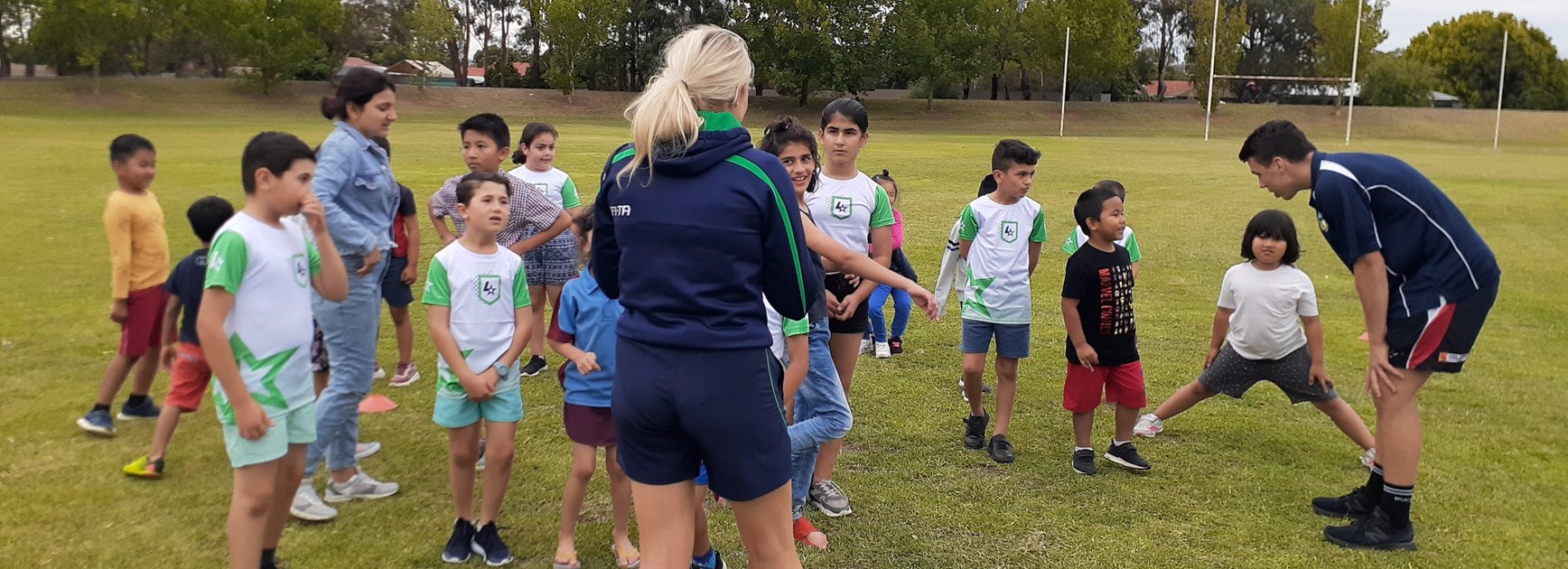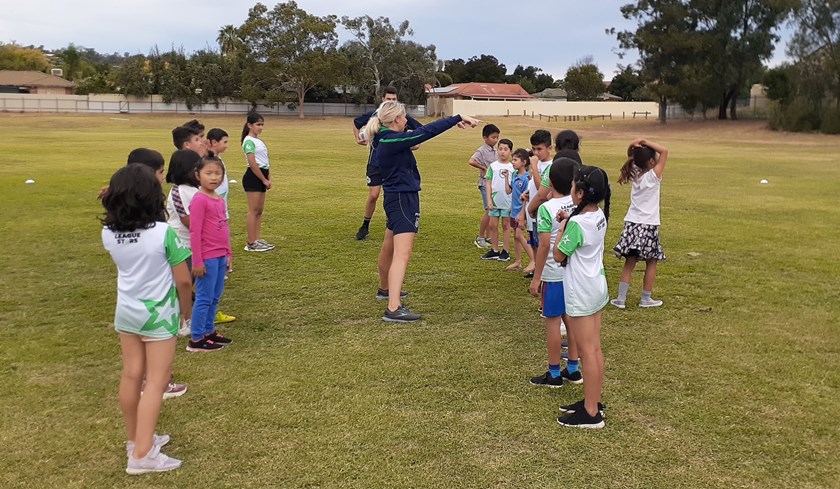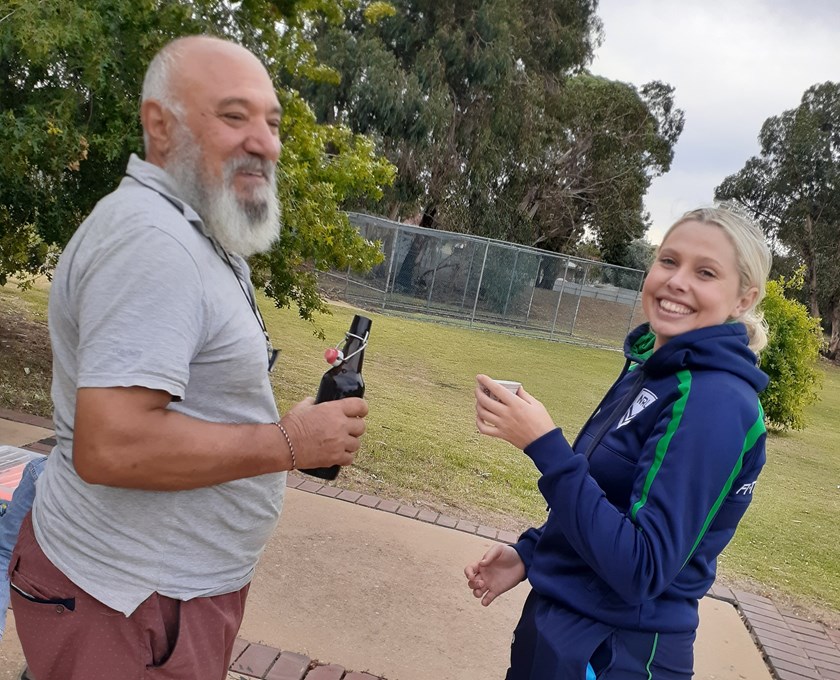
Young refugees from Iraq and Burma are being introduced to footy in Wagga Wagga through a six-week League Stars program supported by the Red Cross.
Aged 5-12 years old, the 26 participants settled in Wagga, a major NSW regional city, between one and 18 months ago.
Now halfway through the non-contact skills sessions, which overlapped with Harmony Week and Day (21/3), the parents of the children have been hailed as harmony heroes for their involvement.
It's hoped that some of the kids and/or their parents will decide to extend their connection to the game by joining the local Turvey Park Junior Rugby League Club as players or volunteers.
The NRL celebrates multiculturalism, with 73 percent of Telstra Premiership players, or their parent/s or grandparent/s, born overseas. There are 53 nations of origin among current NRL players.
"It's great to see the program up and running. It's been 12 months in the making," NRL game development officer James Smart said.
"We had everything ready to go for the program to launch this time last year but when COVID hit everything came to a halt.
"We're thankful to the Red Cross for their support."

Neil Barber, the regional manager and community lead at the Red Cross, explained that Wagga has been a "major settlement site" for about 30 years with employment and education opportunities.
"For the Burmese and the Iraqi communities, they've come from places where it hasn't been safe for children to play for a long time, so for them to come here and be able to walk around the streets and go to the park to kick a football would be different," Barber said.
"But this is the first time that Red Cross has been approached by a major sporting code – rugby league – to become involved.
"It's a different game for many of [the refugees], so we introduce them to the concept of it through the League Stars program.
"It's been a really valuable educational experience for the children and the parents because they can see it's not just the NRL competition they might see on television, which might seem quite a combative game, but it's also fun and boys and girls can participate in it."
To assist with communication at hour-long League Stars training on Wednesdays, the Red Cross has provided bilingual staff.
"The language barrier is a challenge, but we've made sure the activities that we've done with the kids may be similar to games they've played at school or before," Smart explained.
"We're just putting a rugby league spin on it ... A driving factor for the program is to introduce kids to the game in a non-contact format and then from there, if kids are keen to continue on with rugby league, it's important for us to provide them with that pathway."

For Barber, having the parents interacting with new people is just as crucial as the kids' sporting development.
"It's a really good way to introduce them to that notion of becoming involved in the community through volunteering," he said.
"Meeting people that might have similar interests to you – they may not speak the same language, but they like sport.
"So you might build those other connections and you might make new friends from different cultures as well, which for us is the advantage of bringing the Burmese and the Iraqis together because ordinarily, those two communities wouldn't necessarily interact.
"We had one of the dads last week going around making coffee for everyone. It's a really valuable thing because that's the way you make friends and build that sense of neighbourhood and community."
Barber said the Red Cross and the NRL would review the program's success and could look to expand their partnership.
"It's a nice feeling to know there's a real purpose behind what we're doing," Smart added.

